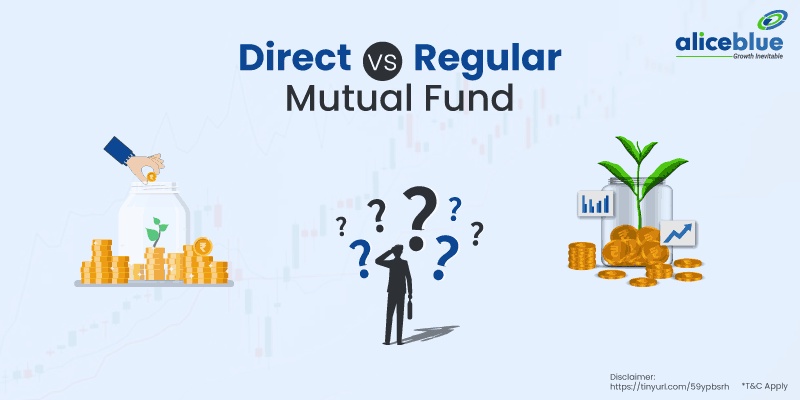Investing in mutual funds has become a popular choice for individuals seeking to grow their wealth and achieve their financial goals. When exploring the world of mutual funds, you will often come across the terms "direct" and "regular" mutual funds. These two options represent distinct approaches to investing, each with its own advantages and considerations. In this article, we will delve into the key difference between direct and regular mutual fund, empowering you to choose the path that leads to investment success.
Direct Mutual Funds: Empowering Investors
Direct mutual funds provide investors with a direct channel to invest in mutual fund schemes. By eliminating intermediaries, investors can enjoy certain benefits:
-
Lower Expense Ratio: Direct mutual funds typically have a lower expense ratio compared to regular mutual funds. This means that a larger portion of your investment goes towards the growth of your portfolio.
-
Enhanced Returns: With lower expense ratios, direct mutual funds have the potential to generate higher returns. Over time, even slight differences in returns can significantly impact the growth of your investments.
-
Transparency and Control: Direct mutual funds offer greater transparency, allowing investors to directly access information about the fund's performance, holdings, and expenses. Investors have greater control over their investments and can make decisions based on their own research and analysis.
Regular Mutual Funds: Convenience and Support
Regular mutual funds, while involving intermediaries, offer certain advantages that cater to the needs of some investors:
-
Expert Guidance: Regular mutual funds provide the convenience of expert guidance from financial advisors or distributors. These professionals can offer personalized recommendations based on your financial goals, risk tolerance, and investment preferences.
-
Ease of Transactions: Intermediaries facilitate the investment process, making it more convenient for investors to navigate through different mutual fund options. They assist with account setup, investment transactions, and addressing investor queries.
-
Additional Services: Regular mutual funds may offer additional services such as portfolio tracking, periodic reports, and personalized support. These services can be valuable for investors who prefer a more hands-on approach to their investments.
Choosing the Path to Investment Success
To determine the right path for your investment journey, consider the following factors:
-
Investment Knowledge and Comfort: If you have a good understanding of mutual funds, investment strategies, and are comfortable making investment decisions on your own, direct mutual funds may suit your needs.
-
Financial Expertise and Support: If you prefer expert guidance and ongoing support in managing your investments, regular mutual funds may be a better fit for you.
-
Cost Considerations: Evaluate the expense ratios and associated costs of both direct and regular mutual funds. Assess whether the potential benefits of direct funds outweigh the convenience and services offered by regular funds.
-
Long-Term Goals: Consider your long-term financial goals and investment horizon. Select the option that aligns with your objectives, risk tolerance, and time horizon.
Conclusion
Choosing between direct and regular mutual funds is a decision that should be based on your individual circumstances, preferences, and goals. Direct mutual funds offer lower costs, higher potential returns, and greater control, while regular mutual funds provide expert guidance and convenience. Evaluate your knowledge, comfort level, and the level of support you require before making a decision.
Remember, it is always beneficial to consult with a financial advisor who can provide personalized advice based on your unique situation. By selecting the right path, you can embark on your investment journey with confidence, working towards the achievement of your financial dreams and ultimately attaining investment success.


No comments yet